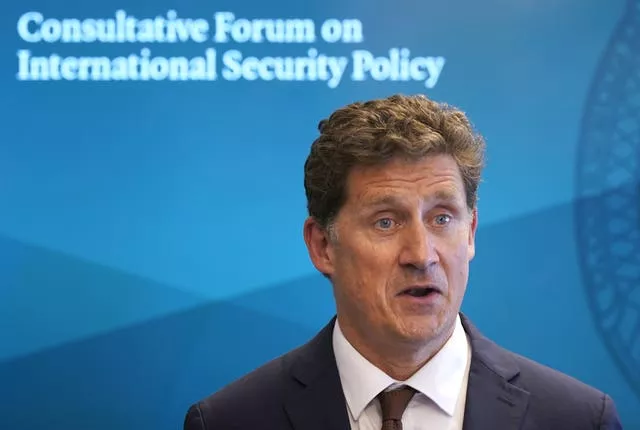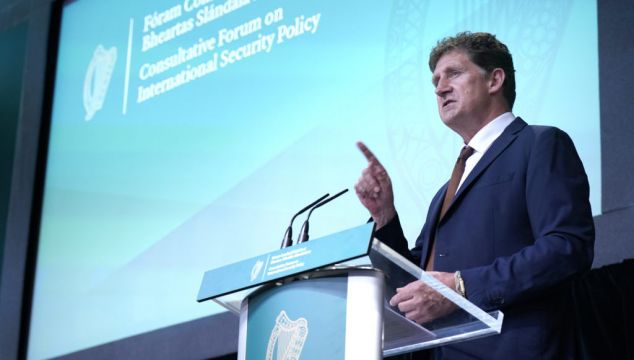Environment minister Eamon Ryan said the consultative forum on international security policy had been “very beneficial”.
He also defended the Green Party proposal to change the triple lock to make it more flexible as one that would “strengthen” Ireland’s military neutrality.
Four days of discussions between experts and academics on global affairs, security and defence issues have been held in Cork, Galway and Dublin over four days.

The days have been marked by protesters who have interrupted proceedings to voice their opposition to the forum and to Ireland joining Nato.
Tánaiste Micheál Martin accused them of shutting down the debate and has emphasised that it is not Government policy for Ireland to join Nato.
Speaking on the final day of the forum, held at Dublin Castle, the Green Party leader said that a more flexible version of the triple lock would ensure that Irish troops could take part in peacekeeping missions abroad while also protecting Ireland’s neutral stance.
This would involve requiring that a peacekeeping mission be approved by the Dail, the Seanad and the UN Security Council – or a regional organisation such as the African Union or the European Union.
Speaking to reporters afterwards, he said he had listened to criticism of the Green Party’s proposal to change the triple lock, but disagreed.
“This policy does strengthen, in my mind, our military neutrality. It has to be a functional one,” he said.
“It’s for peacekeeping, where we’ve had real strength as a country and to make sure we can do that in an effective way, if we decide to do so, with a triple lock that’s relevant to the world today.
“Because I don’t think anyone would argue that the UN Security Council is a functioning system.”
He said that more resources were needed across Ireland’s security forces.
“One thing we do need to do – and this is going across our security forces – we need resources,” he said.

“We do need to resource the Defence Forces at sea with radar and in the air. We need to have capability where we can get people out – not meeting every eventuality, but more than we have at the present.
“We don’t have sufficient resources in our Defence Forces to sometimes carry out those critical, immediate, emergency responses that we do need to be able to do.”
He also defended the approach of the forum.
He said that the chair of the forum, Professor Louise Richardson, had said it had been “a very unique exercise, very (few) other governments would hold open public forums in terms of how they develop their security policy”.
“So I think it has been very beneficial, it’s not over, there is up until July 7 for people to make their submissions,” he said.
“The more people who follow through on that, I think, the better.”







